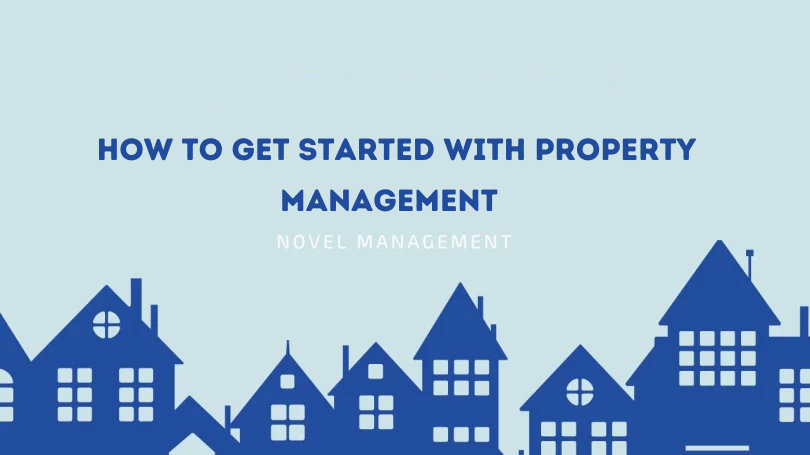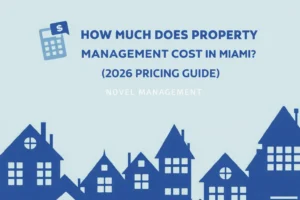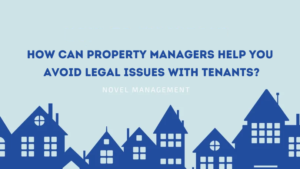Property management is a crucial aspect of real estate ownership, and it involves the oversight and operation of residential, commercial, or industrial properties. It requires a mix of knowledge in various fields such as finance, marketing, and legal matters to effectively manage properties.
Getting started with property management can seem daunting at first, but with the right information and tools, it can be a rewarding and lucrative venture. This guide will provide you with essential tips and insights on how to get started with property management. From understanding the basics of property management to developing effective strategies for managing your properties.
In this article, we will discuss the fundamental steps you need to take as a property manager, including setting goals, finding suitable properties, screening tenants, and handling maintenance requests. So let’s dive in and learn how to get started with property management.
Understanding Property Management Basics
Before diving into the specifics of property management, it is essential to understand what it entails. At its core, property management involves managing various rental properties on behalf of their owners. This includes both residential and commercial properties.
As a property manager, your responsibilities may include finding and screening tenants, collecting rent, handling maintenance and repair requests, budgeting and financial management, and ensuring that properties comply with local laws and regulations. You are essentially the middleman between the property owner and the tenants.
It is crucial to have a solid understanding of these basic responsibilities before delving into property management. This will help you set realistic expectations for yourself and your clients, as well as ensure smooth operations from the start.
Tips for Getting Started with Property Management

Now that you have a general understanding of what property management entails, let’s discuss some essential tips for getting started in this field.
Educate Yourself
To thrive as a property manager, a strong foundation of knowledge is essential. Start by learning the basics of property management through courses, books, and online resources. Familiarize yourself with industry-specific terminology, best practices, and the financial aspects of managing residential and commercial properties. Understanding the fundamentals will give you the confidence to tackle challenges effectively and produce exceptional results for your clients.
Consider obtaining certifications or licenses specific to your region, as these may be required to operate legally and professionally. Many organizations, such as the National Association of Residential Property Managers (NARPM), offer programs that can enhance your skills and credibility. Continuous education will not only expand your expertise but also show your commitment to delivering high-quality services to property owners and tenants alike.
Network
Building a strong network within the real estate and property management community is invaluable. Attend industry events, workshops, and conferences to connect with other professionals, including property managers, real estate agents, contractors, and legal experts. These connections can provide you with valuable insights, support, and potential leads for new clients or business opportunities.
Online platforms like LinkedIn, property management forums, and industry-specific groups can also be great resources to expand your network. Having access to a reliable support system allows you to stay informed on industry trends, share experiences, and find solutions to challenges you may face along the way. A well-built network can significantly contribute to your success as a property manager.
Set Clear Goals
Defining clear and actionable goals is key when starting in property management. Begin by identifying what you aim to achieve, whether it’s managing a specific number of properties, building a reputation for excellent service, or scaling your business over time. These goals act as a roadmap, keeping you focused and motivated as you grow in your career.
Make sure your goals are measurable and realistic, using tools such as SMART criteria (Specific, Measurable, Achievable, Relevant, Time-bound) to track progress. Goal setting not only helps you prioritize tasks but also ensures that your efforts align with your long-term vision, enabling steady and sustainable growth in the competitive property management industry.
Develop Effective Systems and Processes
Implementing effective systems and processes is fundamental to streamlining your operations. From tenant screening to maintenance requests and rent collection, having a structured approach ensures consistency and efficiency in your daily tasks.
Automation tools and property management software can further simplify your processes, saving you time and reducing errors. These systems can help manage tenant communications, financial records, and maintenance schedules seamlessly, allowing you to focus on building solid relationships with clients and tenants.
Understand Local Laws and Regulations
Property management involves navigating various legal and regulatory requirements, which can vary significantly based on location. Understanding local laws related to tenancy, eviction, security deposits, and property maintenance is crucial to avoid potential legal issues. Ignorance of the law can lead to lawsuits, fines, or even damage to your professional reputation.
Stay informed by consulting with legal experts, attending compliance seminars, and regularly reviewing local regulations. Being well-versed in the legal aspects of your responsibilities not only protects you and your clients but also establishes trust with potential tenants who value transparency and adherence to rules.
Utilize Technology

Technology has revolutionized the property management industry, making it easier to manage tasks and communicate effectively. Invest in property management software to oversee key functions such as rent collection, lease management, and tenant screening. These tools can significantly enhance efficiency and reduce manual effort.
Explore digital marketing tools to advertise properties and reach a wider audience. Virtual tours, online applications, and automated communication systems can improve the tenant experience and set you apart from competitors. Leveraging technology wisely ensures smoother operations and elevates your service offerings.
Build a Reliable Team
A dependable team is essential for delivering high-quality property management services. Surround yourself with skilled professionals, from maintenance technicians to financial consultants, who can help you address the varied responsibilities of managing properties. Collaborating with trustworthy individuals ensures both tenants and property owners receive the support they need.
Establish clear communication channels and define roles within your team to maintain smooth operations. Regularly invest in training and team-building activities to enhance collaboration and ensure that everyone is aligned with your business objectives. A reliable and cohesive team is a critical asset in achieving long-term success.
Continuously Learn and Adapt
The property management industry is constantly evolving, driven by changes in laws, technology, and market conditions. To stay competitive, make continuous learning a priority. Attend workshops, subscribe to industry publications, and stay updated on the latest trends and tools in property management.
Additionally, be prepared to adapt to changing circumstances. Whether it’s implementing new technology, updating processes to comply with laws, or shifting strategies to meet market demands, flexibility is essential. A commitment to lifelong learning and adaptability will position you as a competent and forward-thinking property manager.
Tips for Success in Property Management

Here are some additional tips to help you succeed in property management:
- Always prioritize communication and prompt responses with clients, tenants, and team members.
- Be organized and detail-oriented to effectively manage multiple properties and tasks.
- Have a thorough understanding of financial management to ensure profitability for yourself and your clients.
- Develop strong relationships with contractors, vendors, and suppliers for reliable maintenance services.
- Stay updated on market trends and adapt your strategies accordingly to maximize returns for owners.
- Practice empathy when dealing with tenant concerns or issues.
- Conduct regular property inspections to identify maintenance needs or potential issues before they escalate.
By following these guidelines and continuously striving towards improvement, you can build a successful career in property management and achieve your long-term goals.
FAQs
What is required to start your own property management company?
To start your own property management business company, you typically need a property management license or a real estate broker’s license, depending on local regulations. Developing a detailed property management business plan is essential.
How does a certified property manager differ from other property management professionals?
A certified property manager has advanced training and certification in the real estate industry, showcasing expertise in commercial property management, lease agreements, and other property management skills.
What should be included in a property management business plan?
A property management business plan should outline the target local market, services offered, fee structure (including ongoing management fees), marketing strategy, and goals for the property management firm.
Do I need a real estate broker’s license for a property management job?
Many property management jobs, especially those managing lease agreements or real estate properties for others, require a real estate broker’s license or equivalent certification, depending on local laws.
What skills are essential for success in the property management industry?
Key property management skills include tenant relations, knowledge of lease agreements, understanding the local market, and proficiency in managing commercial property management tasks, which are crucial for growing a property management firm.
Conclusion
Property management can be a highly rewarding and fulfilling career, but it requires dedication, hard work, and continuous learning. By following these tips and guidelines, you can become a successful property manager and provide exceptional services to your clients and tenants.
If you are looking for a reliable and experienced property management team, consider Novel Management. Our commitment to excellence and dedication to continuous improvement sets us apart in the industry. Contact us today to learn more!




